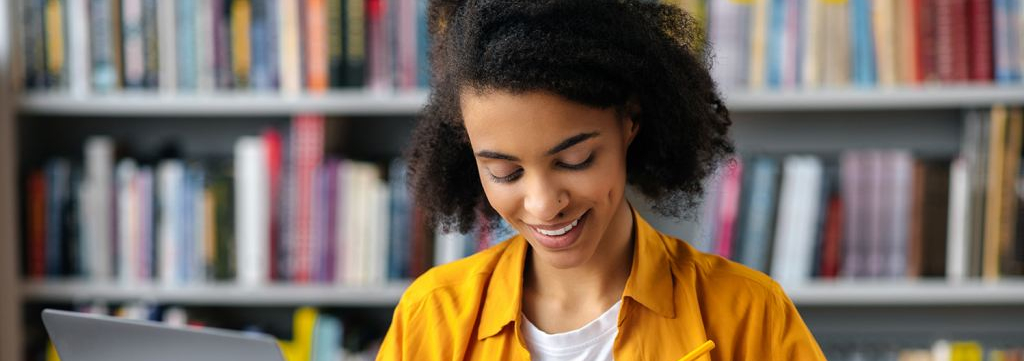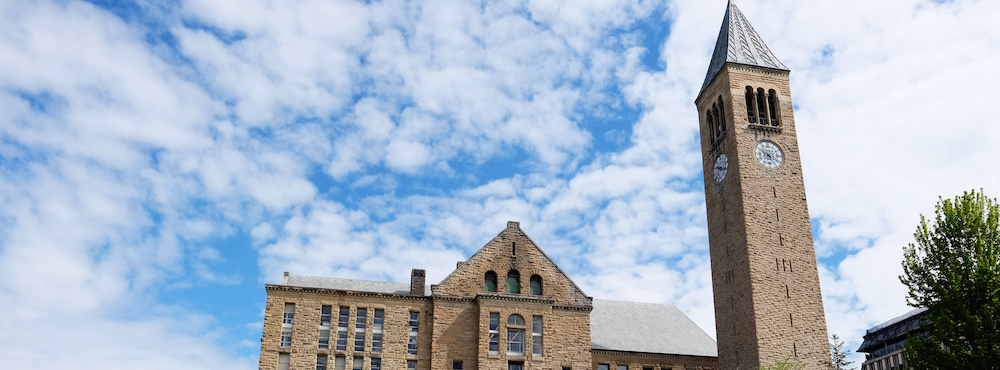Though it may seem hard to believe, the topic of women’s history is a relatively recent addition to higher education, having been largely absent prior to the 1970s. To address this issue, the Education Task Force of California established Women’s History Week. Strong support eventually led to Congress declaring March as Women’s History Month in 1987. Today, numerous colleges and universities across the U.S. have added women’s studies and similar programs to their curriculum.
For students interested in women’s history and gender studies, IvyWise has identified a list of colleges and programs that would make Susan B. Anthony proud. One or more of these schools may be just right for your college list.
Moravian University — Bethlehem, PA
Founded as the Bethlehem Female Seminary, Moravian University earned early support from George Washington, who petitioned for admission for his nieces. Today, approximately 2,600 women and men can experience this private school’s heritage as a women’s college through various outlets and traditions. The minor in Women’s, Gender and Sexuality Studies features courses such as “Women in Modern U.S. History” and “Religion and Feminist/Gender Studies.” In addition, students can take advantage of courses, workshops, and conferences offered by Cedar Crest College, DeSales University, Lafayette College, Lehigh University, and Muhlenberg College through the Lehigh Valley Association of Independent Colleges Women’s, Gender and Sexuality Studies Coalition.
After class, they can participate in activities and organizations such as the American Association of University Women, Pay Equity Day, and Take Back the Night, a multi-day march/rally in which students advocate against violence on campus and in the community. During Women’s History Month, the Moravian campus is host to a series of events, including lectures, movie viewings, and panel discussions.
Moravian men and women can choose from more than 70 areas of study. The college is also proud of its music and arts programs, which are shared with the wider Bethlehem community. The Moravian University Choir performs locally and around the world, and the public can view student artwork on display at the Payne Gallery.
Barnard College — New York, NY
Established in 1889, Barnard College is named after Frederick Barnard, who originally advocated for the admission of women to Columbia University. Thanks to Frederick, today’s 3,400 female undergraduate students at this private liberal arts college can major in more than 50 areas of study and can even cross-register for classes at Columbia.
The Women’s, Gender, and Sexuality Studies department features historically focused courses such as “Historical Approaches to Feminist Questions” and covers modern themes such as “Science, Technology, Power.” Senior WGSS majors are required to complete a research project with a faculty member. Students can utilize resources such as the Barnard Center for Research on Women and the Consortium with Africana Studies and American Studies.
Given its partnership with Columbia, Barnard students can enjoy the benefits of a small, all-female liberal arts college and a large, co-educational institution. Students at either school can pursue classes, athletics, and student organizations at the other. Located in New York City, Barnard keeps its campus community lively by hosting cherished traditions such as Convocation, Midnight Breakfast, and Big Sub.
Mount Holyoke College — South Hadley, MA
Established by Mary Lyon as the first of the Seven Sisters Colleges, Mount Holyoke College was founded nearly a century before women gained the right to vote. Today, Lyon’s motto, “Go where no one else will go; do what no one else will do,” continues to inspire the 2,200 female students at this private liberal arts college.
One of 48 departmental and interdepartmental majors, the Gender Studies program explores the relationships between gender and class, race, nationality, sexuality, and social practices. During junior or senior year, majors are required to complete a field-study seminar, and the Gender Studies Department hosts various events throughout the year.
Through the Twelve College Exchange Program, Mount Holyoke students can spend time studying at a participating partner institution such as Dartmouth or Vassar College. Additionally, Mount Holyoke is a member of the Five College Consortium — with Amherst College, Hampshire College, Smith College, and the University of Massachusetts at Amherst — allowing students access to a myriad of academic, social, and cultural events among the five campuses, all within 20 minutes of each other. On campus, students can choose from more than 100 student organizations and participate in long-standing traditions such as Mountain Day and the annual vespers concert.
Wesleyan College — Macon, GA
One of the first colleges in the world chartered to grant degrees to women, Wesleyan College remains a women’s college, offering 24 majors, 35 minors, and eight pre-professional programs. Students can also design their own major. Due to the interdisciplinary nature of the Women, Gender, and Sexuality major and minor, many courses are cross-listed with other departments. The program for the major provides an integrative classroom experience and requires students to complete a professional development component, which can take the form of volunteer or advocacy work or even production of a creative project.
True to its motto, “First for Women,” the school lays claim to the first alumnae association; the first sororities, Alpha Delta Pi and Phi Mu; and counts among its graduates the first woman to argue a case before the Georgia Supreme Court and the first woman in Georgia to be issued a commercial pilot’s license.
Located on a picturesque 200-acre campus in suburban Macon, Wesleyan College is a private, liberal arts college. The school’s 700 undergraduate students are further united by strong traditions and an active participation in student organizations. Off-campus, students can enjoy the International Cherry Blossom Festival, the Georgia State Fair, and the Macon Film Festival.
The Ohio State University — Columbus, OH
The third-largest university campus in the U.S., The Ohio State University offers more than 200 academic programs, 1,400+ student organizations, and numerous study abroad opportunities to its 60,000 undergraduate students. A co-ed institution, OSU is particularly proud of its Women’s, Gender, and Sexuality Studies (WGSS) program, one of the largest and most comprehensive of its kind in the country. Students can choose a major or minor. This interdisciplinary field of study explores how the constructs of gender and sexuality impact us culturally, socially, economically, and politically.
WGSS offers several opportunities for students to get involved. The new Feminist Research, Education and Engagement (FREE) Center allows feminist scholars to collaborate on research and community engagement projects. Students can also participate in NEW Leadership Ohio, a week-long summer institute where they can engage with female public officials, advocates, and activists.
Despite the large undergraduate population at this public institution, Ohio State gives students a personalized educational and social experience highlighted by the First Year Experience (FYE), which offers various summer programs that take place before the fall semester starts. FYE also hosts initiatives and events throughout the academic year. Once settled on campus, students can cheer on the Buckeyes — members of the NCAA Division I Big Ten Conference — participate in numerous events on campus, and enjoy all the city of Columbus has to offer.
If you’re considering a major or minor related to women’s studies, some other schools to consider include Duke University, Swarthmore College, and Wellesley College. However, it’s important to research your college options thoroughly to find schools that are the best fit for you academically and socially.
In her fight for women’s suffrage, Susan B. Anthony said “Organize, agitate, educate, must be our war cry!” Though Anthony and many of her fellow suffragists lacked access to higher education, today, women make up nearly 60% of the U.S. college student population. Prospective college students have more opportunities than ever — at the schools listed above and elsewhere — but there is also more competition and selectivity. Contact IvyWise today to learn how we can help you successfully navigate the college admissions process and achieve your academic goals.




